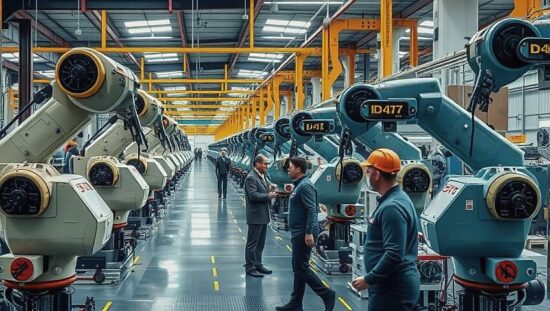A recent study, a collaborative effort between the Ifo Institute, the University of Konstanz and the Institute for Employment Research (IAB), has revealed a complex interplay between automation, worker representation and wage dynamics within German industries. The research highlights the role of works councils – employee representative bodies – in mitigating the negative impacts of industrial robot adoption on production workers, while simultaneously creating nuanced effects on the broader workforce.
The findings indicate that the presence of works councils correlates with higher rates of continued employment and improved wages for production employees navigating the transition to automated processes. Crucially, this positive impact isn’t driven by across-the-board wage increases, but rather by a protective function – shielding routine production workers from wage declines often associated with automation. However, the study also exposes a potential trade-off, noting that works councils appear to restrain wage and income growth for employees outside the production sphere. This creates a subtle but potentially significant shift in the internal wage structure of businesses.
“Works councils contribute to preventing the widening of wage inequality during periods of automation” explained Wolfgang Dauth, a lead researcher at the IAB, “but this benefit can be achieved, in part, at the expense of other employees within the company”. This observation introduces a layer of complexity to the narrative of automation and worker protection, raising questions about the potential for resentment and the equitable distribution of benefits derived from increased productivity.
Remarkably, the research suggests that companies with works councils are inherently more productive – approximately ten percent higher before the introduction of robots. This pre-existing advantage widens considerably following automation, with productivity differentials expanding to nearly thirty percent. These significant gains, statistically and economically validated, demonstrate that cooperative structures like works councils don’t simply act as reactive buffers against technological disruption, but potentially foster a climate enabling greater efficiency.
The study’s conclusions are drawn from extensive data analysis of the IAB Establishment Panel, a longitudinal survey encompassing roughly 15,000 German businesses, coupled with administrative individual-level data. This robust methodology lends substantial weight to the findings, offering policymakers and business leaders valuable insights into the far-reaching consequences of automation and the critical role of worker representation in shaping a more equitable and productive future of work. The findings underscore the need for ongoing assessments of the distributional effects of technological advancements and the potential for adjustments to ensure societal benefit is broadly shared.





